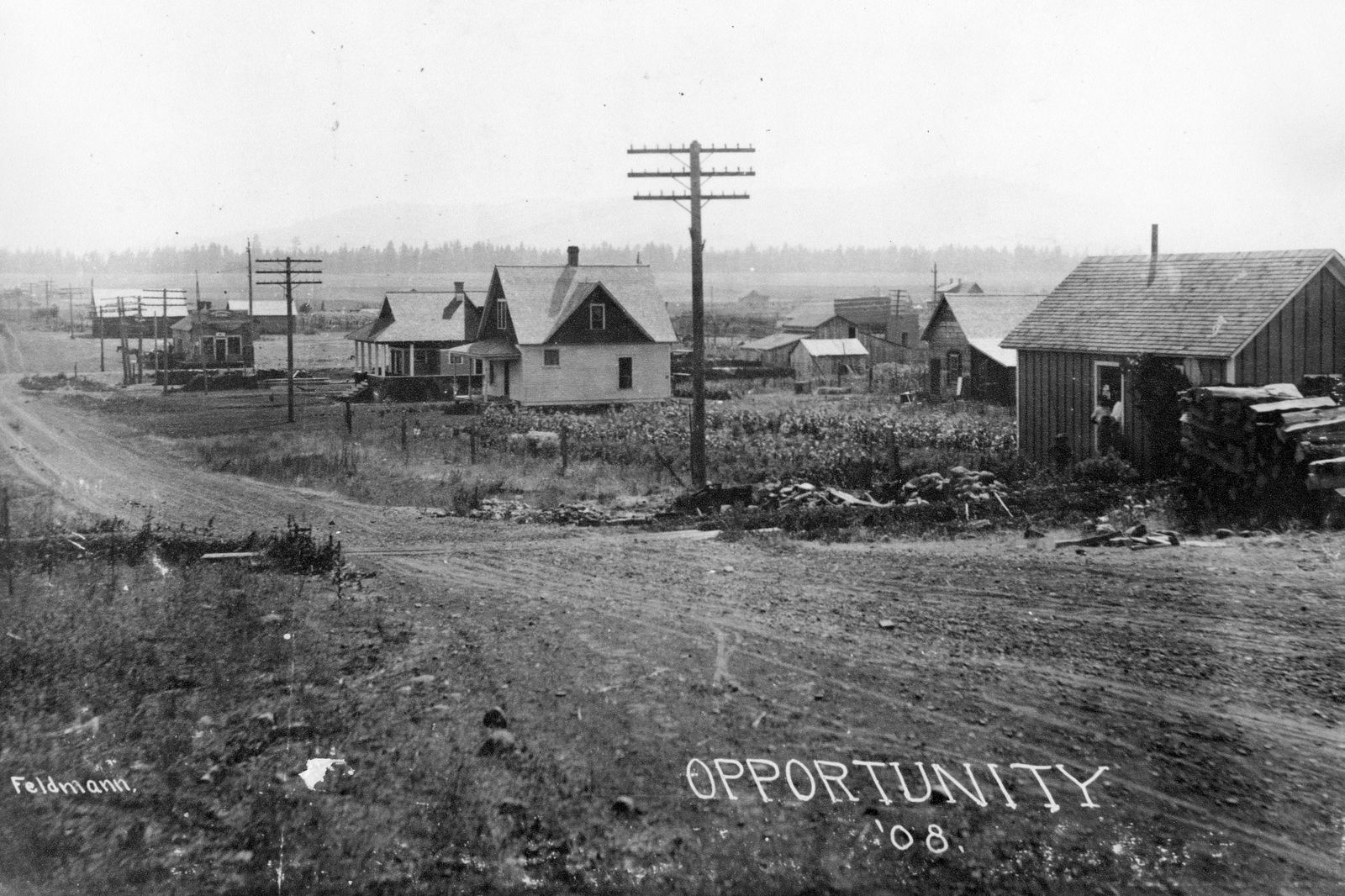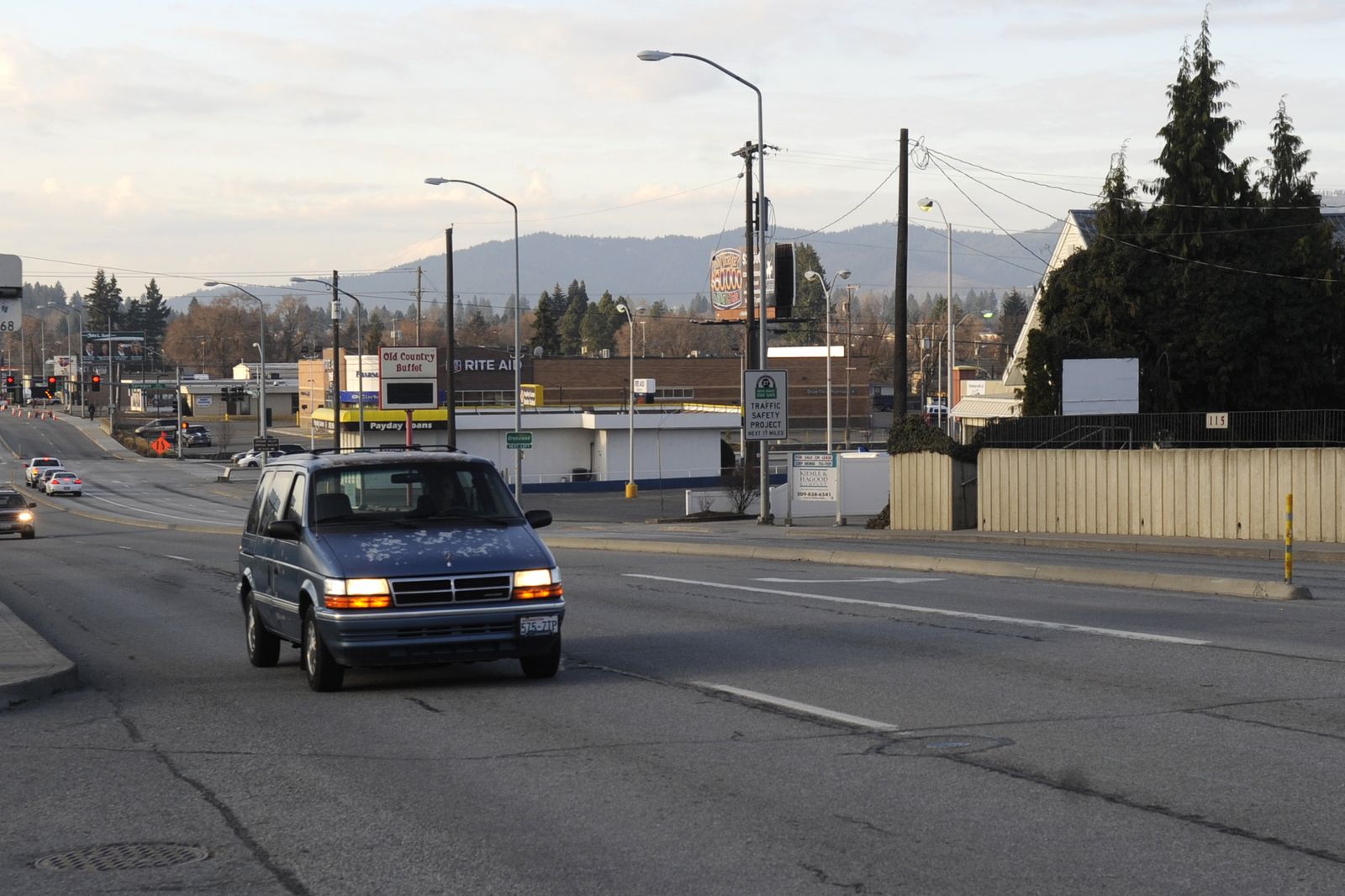
Pines and Sprague
When white immigrants began settling permanently in the Spokane area in the 1870s, it was a particularly hard scrabble group who chose the rural Spokane Valley to try and eek out a meager subsistence raising vegetables, cattle, tree fruit and wheat. Land was cheap, but the tiny settlements like Dishman, Opportunity, Veradale, Greenacres and Otis Orchards were isolated far from the city lights of Spokane.
Section:Then & Now
Image One
Northwest Room of the Spokane Public Library
Image Two
Jesse Tinsley
| The Spokesman-Review
When white immigrants began settling permanently in the Spokane area in the 1870s, it was a particularly hard scrabble group who chose the rural Spokane Valley to try and eek out a meager subsistence raising vegetables, cattle, tree fruit and wheat. Land was cheap, but the tiny settlements like Dishman, Opportunity, Veradale, Greenacres and Otis Orchards were isolated far from the city lights of Spokane. Erma Seehorn, whose family moved to the valley in 1912, remembers that she could only see two lights in the whole valley at night. The arrival of the electric pump for irrigation opened up more land for farming and orchards flourished. The center of public life was usually the general store, which likely subscribed to the city newspaper and shoppers would discuss the news around the store's wood stove in the winter. J. Howard Stegner, from a pioneering Spokane Valley family, explained how people survived the hot summers, frigid winters, poor harvests and everyday trials: "Before the days of payrolls in our valley, one expected to make his living off the land. A successful crop would depend on a good seed bed, sowing at the right time, enough rainfall and whether the grasshoppers ate it up. You were strictly on your own unless you had good neighbors. And to have good neighbors, you had to be one."

